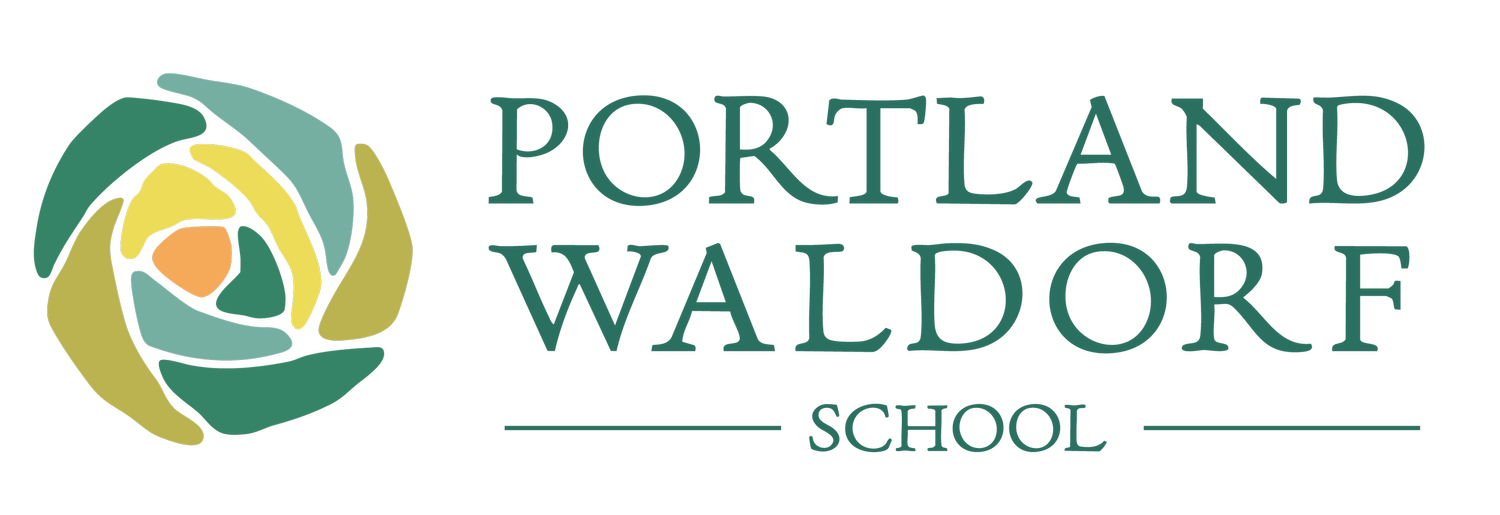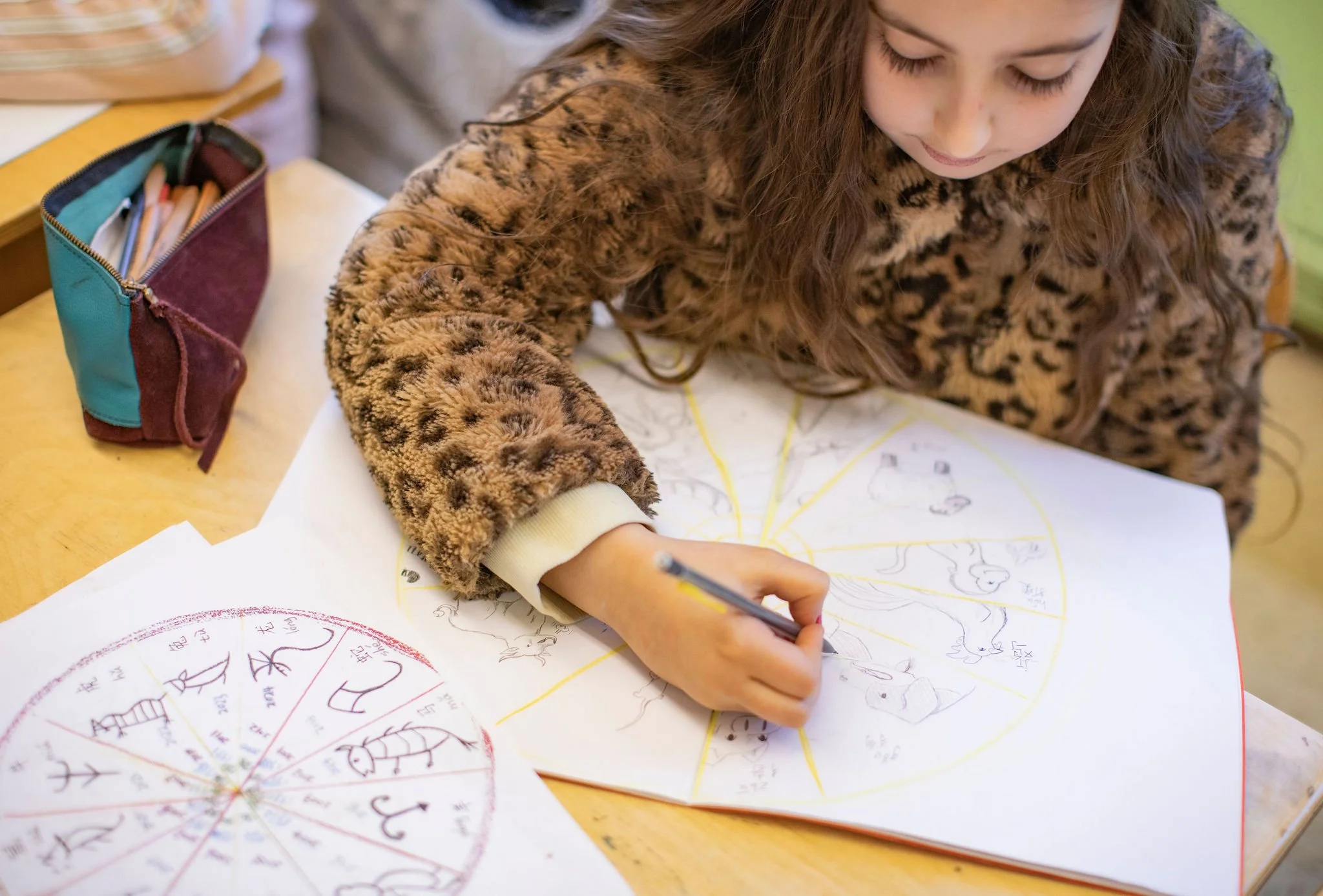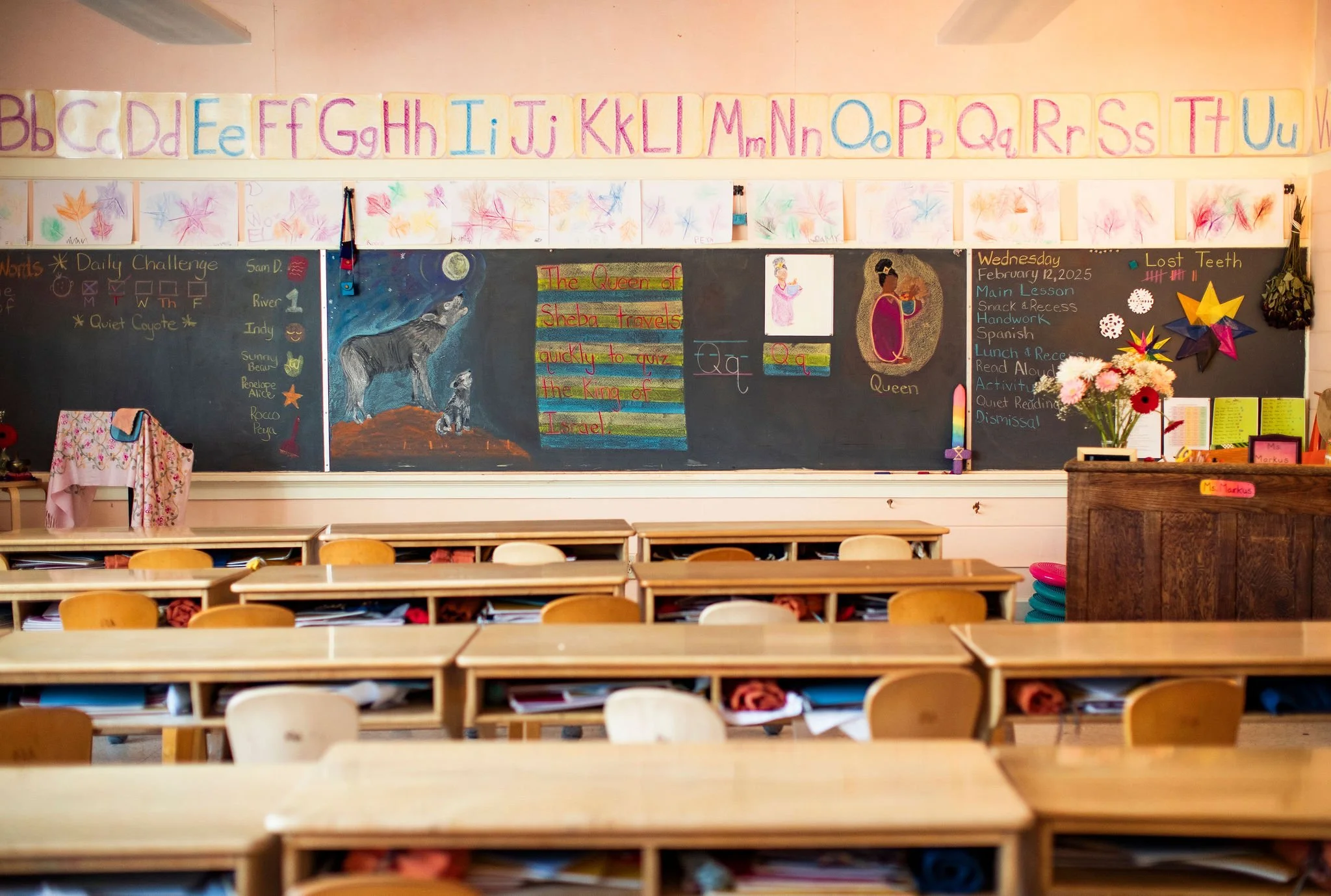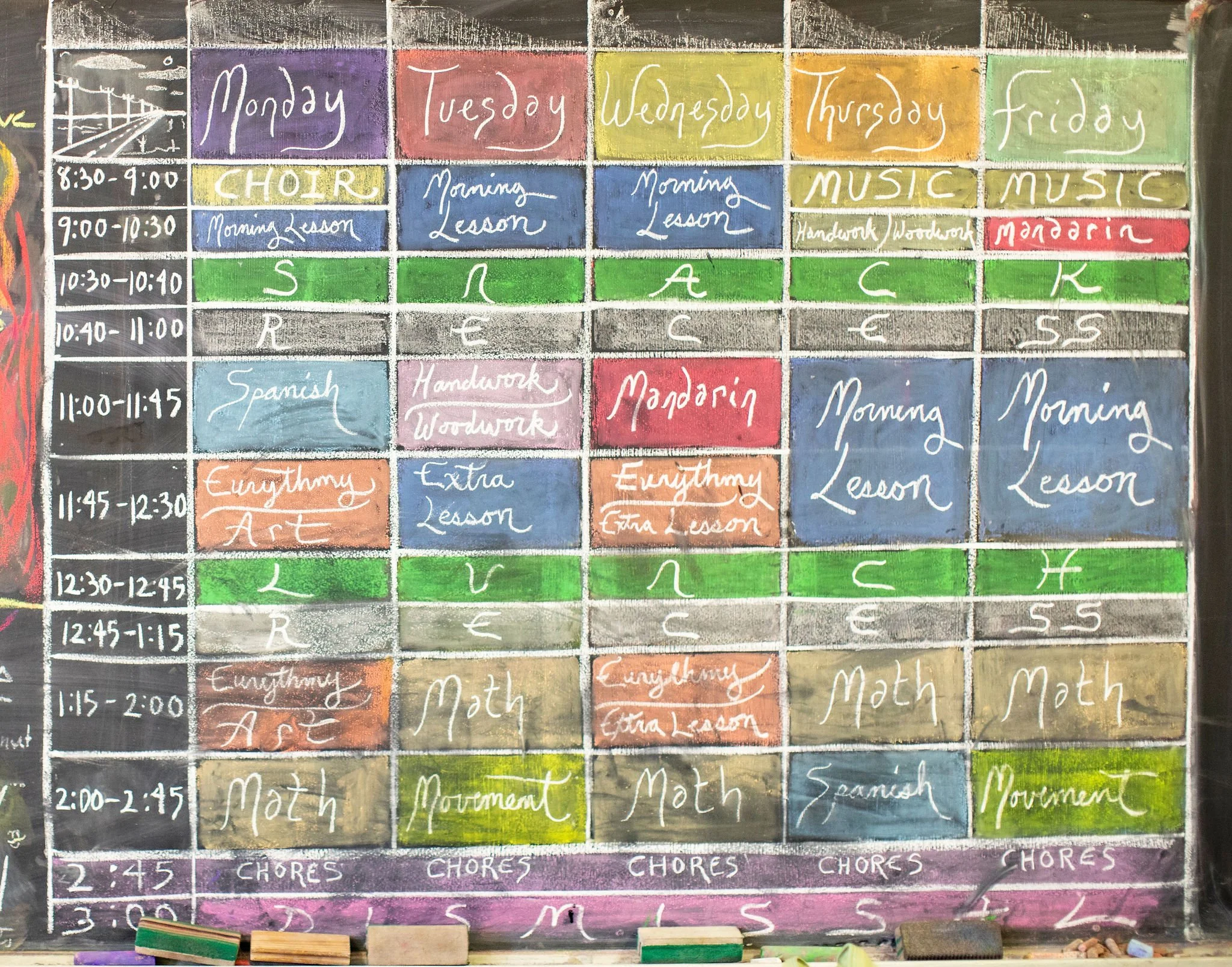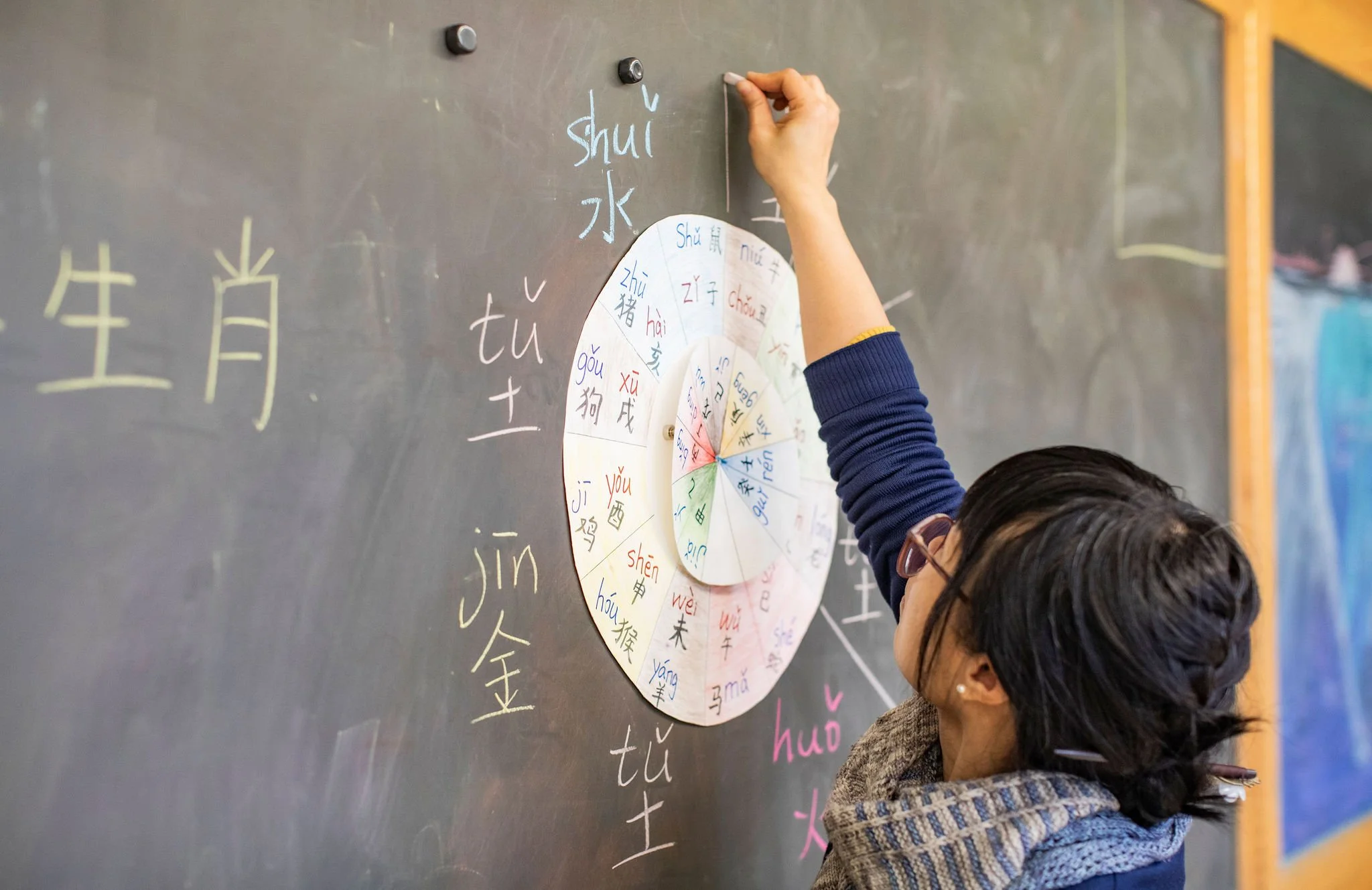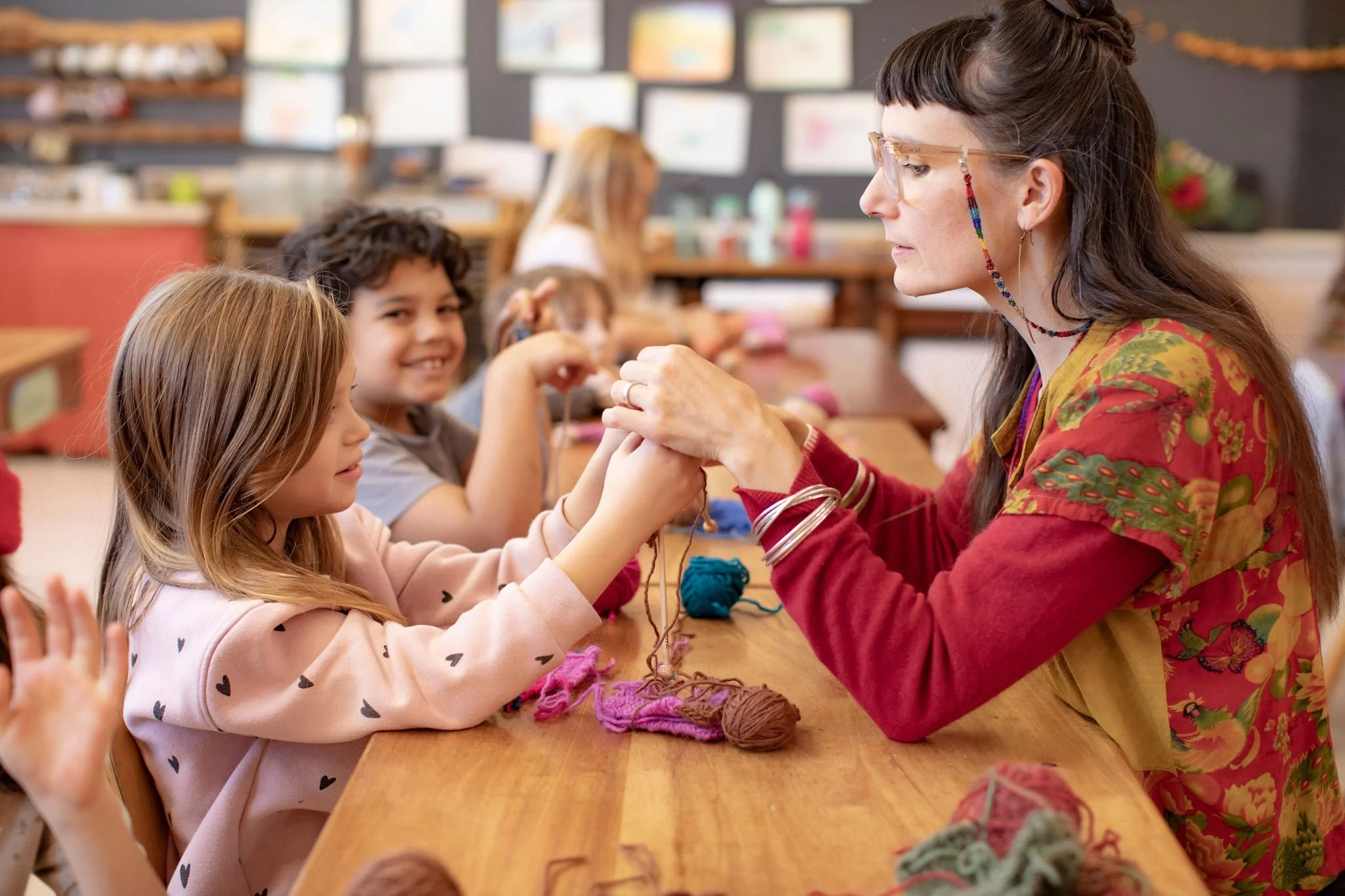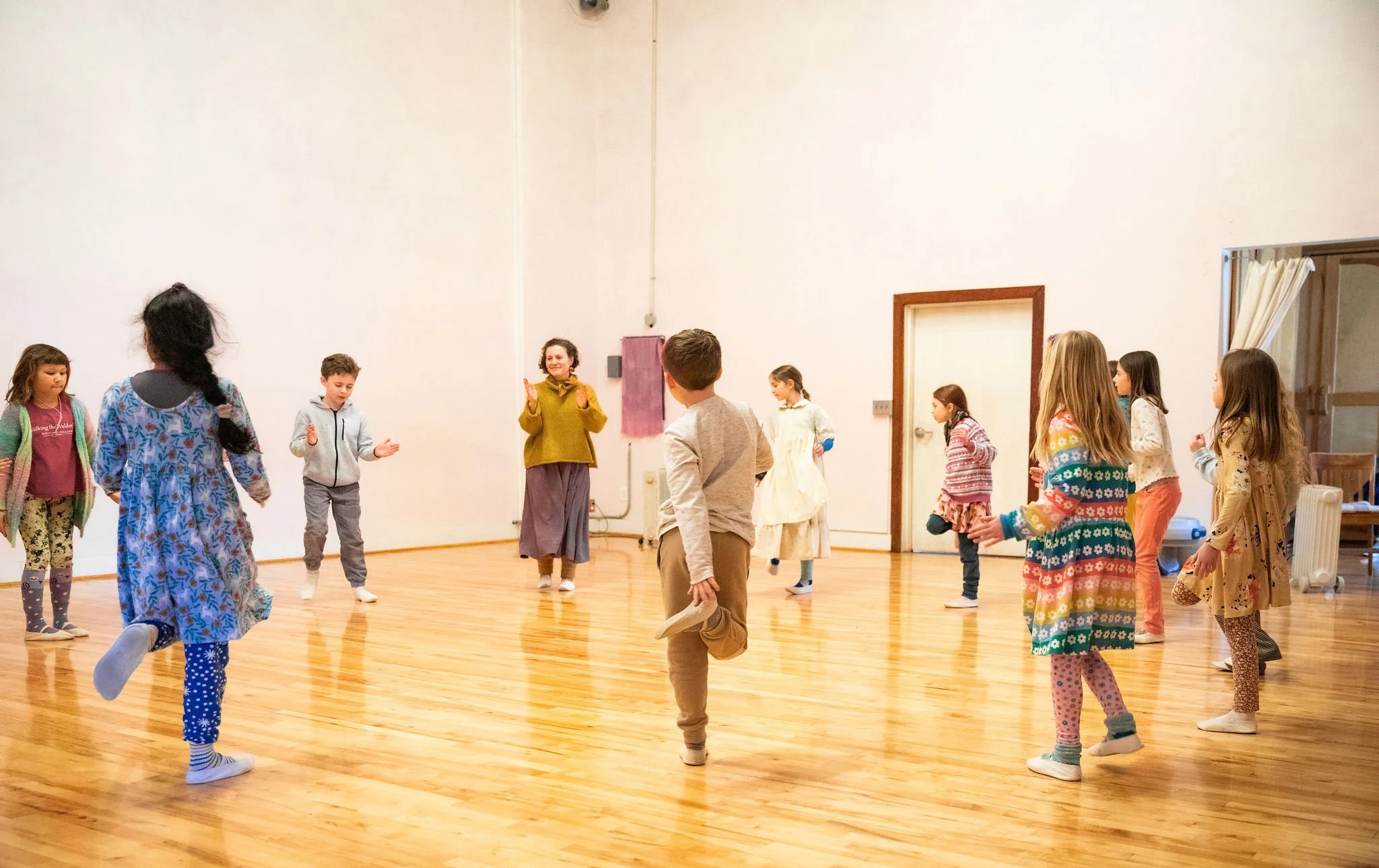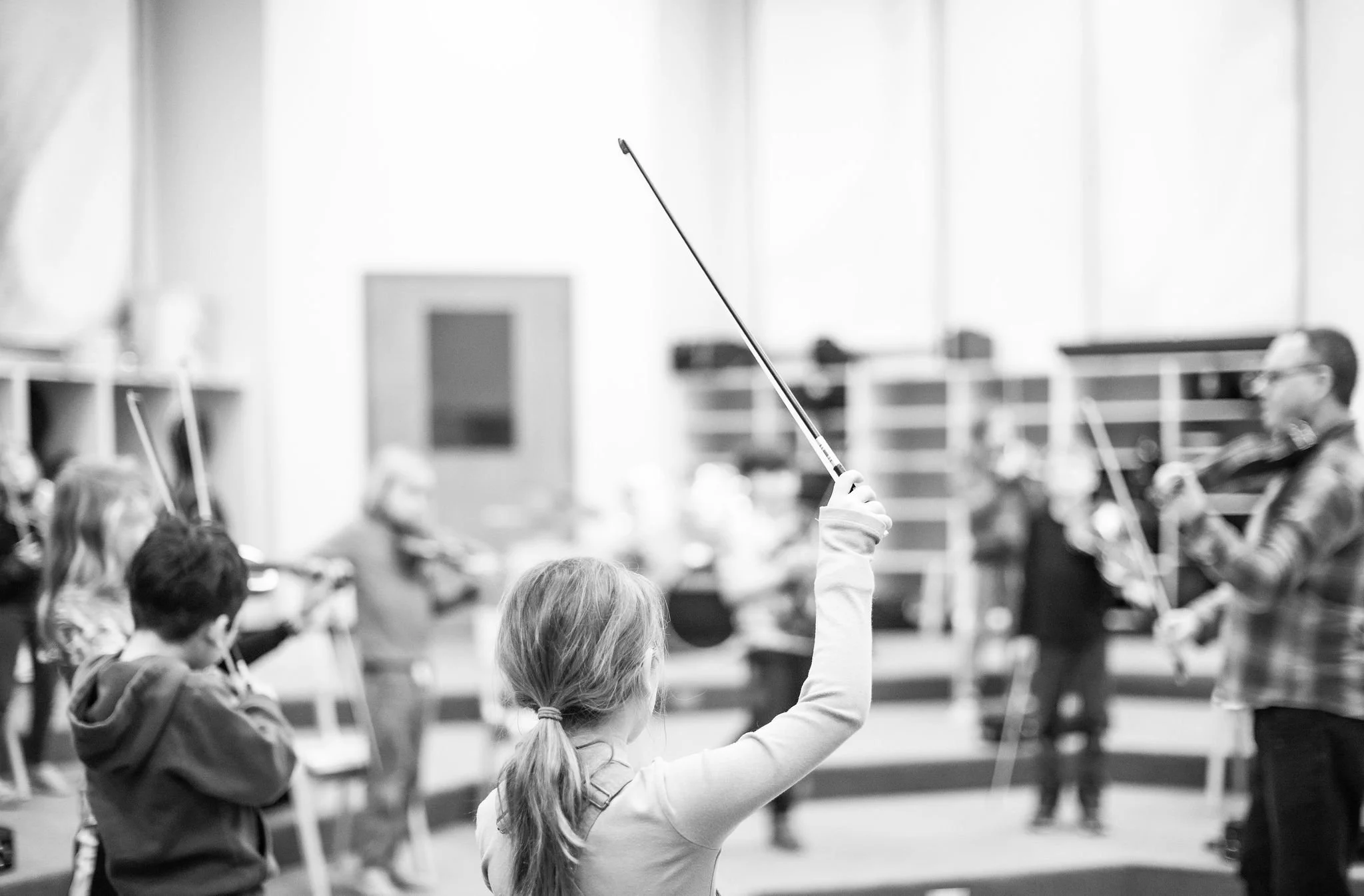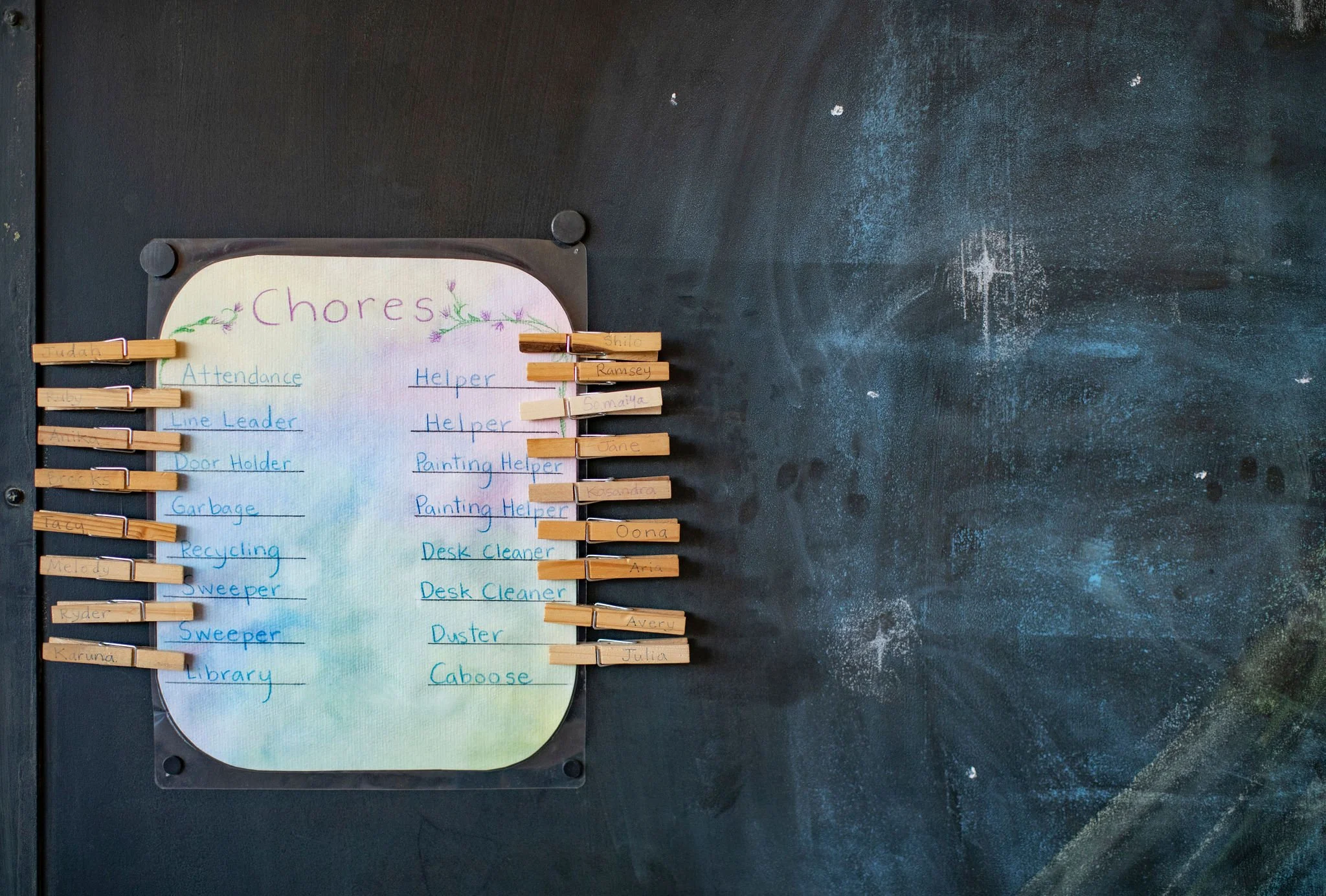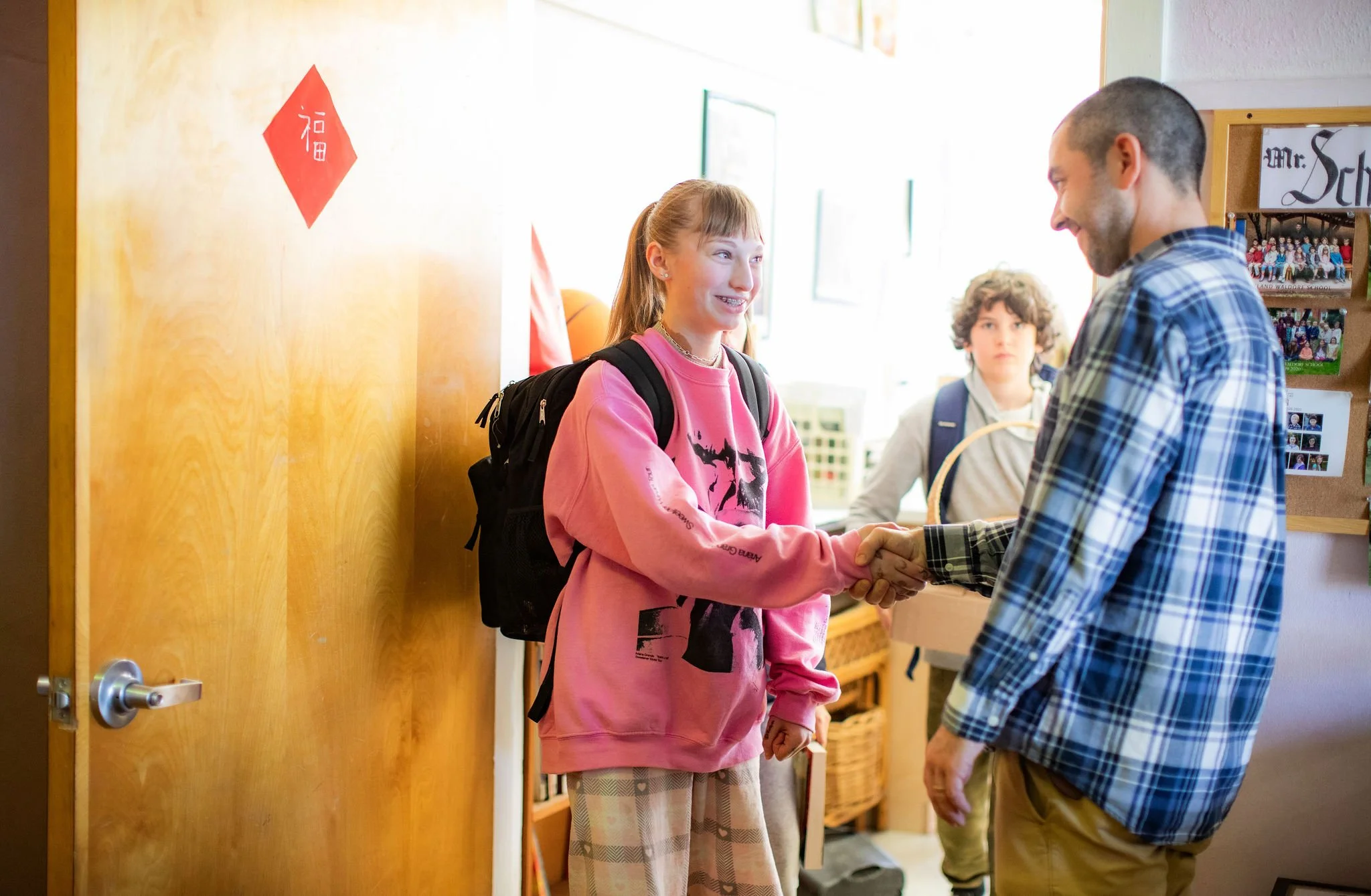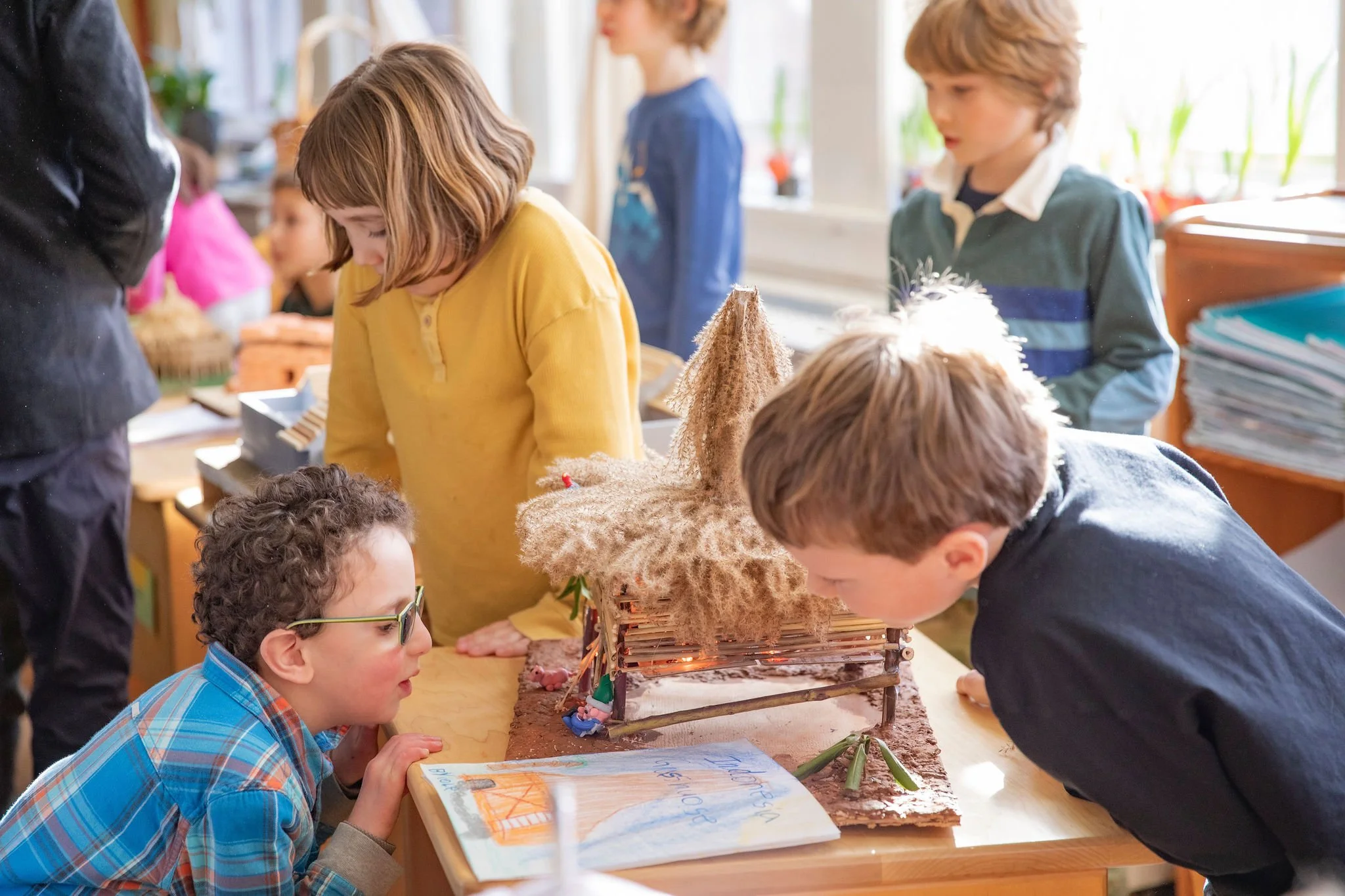
Lower School Grades 1 -5

Waldorf students formally begin their academic journey in first grade building from the early childhood groundwork in imagination, rhythm, and reverence for the natural world. Through storytelling, foundational work in language, mathematics, and nature studies, children begin to nurture both their intellect and inner life. Practical arts such as knitting and crocheting are introduced, helping to develop fine motor skills, patience, and will. Eurythmy, a movement art unique to Waldorf education, brings stories and sounds into physical expression, growing coordination, spatial awareness, and a connection between body and mind.
Throughout the grades, subjects are brought to life through vivid narratives, artistic exploration, and hands-on experiences that align with the developmental stage of the child. By the end of fifth grade, students have built a strong academic foundation rooted in beauty, rhythm, and meaning—carrying through the awe of early childhood into the middle school years, where a more focused inquiry is supported by their teacher, who guides them toward independent thinking, growing self-awareness, and a deeper sense of responsibility in the world.
Our well-rounded, holistic education is truly whole-child—developing their inner life as much as their social and academic one. Learn more about how we teach.
Memorization and Recitation
A cornerstone of Waldorf education is the memorization and recitation of lyrical and narrative texts—cultivating both intellect and expression. Students begin each day with spoken verses that enliven language and foster a shared rhythm within the classroom. Over the years, they commit songs, poems, and dramatic texts to memory, culminating annually in a class play that brings literature and history to life. As they grow, students also present book reports and deliver short presentations, learning to internalize and articulate their own ideas with clarity and confidence.
This intentional emphasis on memorization increases cognitive abilities and strengthens neural pathways. Through regular recitation and performance, students gain confidence, poise, and a lifelong facility with language—laying the groundwork for future academic achievement and expressive capacity.

Main Lesson Block
A unique component of Waldorf—and now more frequently used in project-based learning programs—is the main lesson block. All children begin the first few hours of their day with their Class Teacher, immersed in a subject or theme, which continues for two to three weeks.
The following chart is a rough outline of class curriculum. Freedom in teaching is a core pedagogical philosophy and teachers are encouraged to innovate and explore within the curriculum to best fit the needs of the class. Click on the PDF image below to enlarge.
Daily Rhythm at PWS
-
Waldorf education is rooted in the spiritual and developmental philosophy of Rudolf Steiner’s Anthroposophy, which emphasizes the profound inter-connectedness of human beings with both the natural world and the spiritual realm. Learn More
-
PWS is the most established Waldorf School in the Portland Metro Region, and the only Nursery through High School Program in the Pacific Northwest. Our strong roots allow for innovation in the classroom, while our steadfast commitment to Eurythmy underscores our dedication to Anthroposophy. Learn More
-
At Portland Waldorf School, we seek to create an inclusive community where our differences are both valued and acknowledged. Celebrating our shared humanity and striving to be our best selves is a priority. Learn More
-
Our entire school campus is a cell-phone free zone. Technology, like daily access to laptops and instructional presentations, is used only in the high school as a tool to help adolescence achieve their specific goals purposefully. Read more
-
Educational Support at Portland Waldorf School is thoughtfully interwoven into the curriculum, honoring each child’s unique developmental journey. From early childhood through sixth grade, our Educational Support Teacher and Administrator works closely with students using a holistic blend of integrative movement, artistic exercises, and academic guidance - methods that nurture both the will and the capacity to learn with purpose and joy.
In middle school, students are supported by an Educational Support Teacher and curriculum geared toward the growing capacities of early adolescence, while high school students are supported by a robust Life Skills curriculum and program aimed at addressing the needs of the growing adolescent. Both programs build confidence, and help with making informed decisions, problem-solving, communicating effectively, and developing coping and self – management skills that will help them lead a healthy and productive life.

